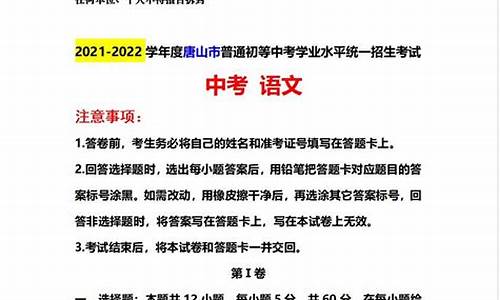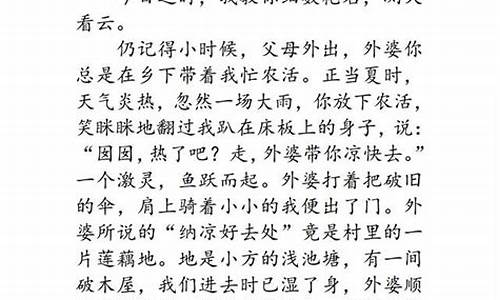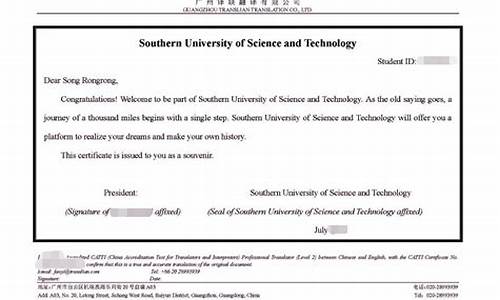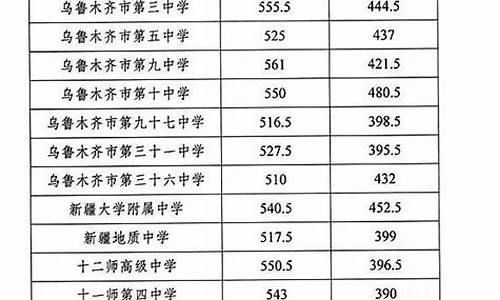您现在的位置是: 首页 > 分数线 分数线
英语高考真题代词_高考英语代词填空及改错
tamoadmin 2024-05-20 人已围观
简介1.《五年高考》P1(代词6、7):英语高手请进,谢谢高考考前语法填空和短文改错代词易错点查漏补缺 代词 1、作表语常用宾格,在独词句中用宾格。 a.—Who is knocking at the door?——It’s me b. He is a student in this school. And me, too. 2、it 指无生命的事物、婴儿、以及who、someone等不名身份的人。
1.《五年高考》P1(代词6、7):英语高手请进,谢谢
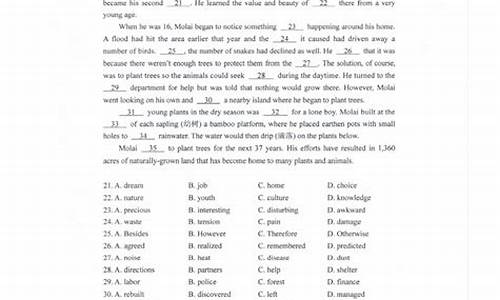
高考考前语法填空和短文改错代词易错点查漏补缺
代词
1、作表语常用宾格,在独词句中用宾格。
a.—Who is knocking at the door?——It’s me
b. He is a student in this school. And me, too.
2、it 指无生命的事物、婴儿、以及who、someone等不名身份的人。
eg: a. —Who is outside? —It is me
b. Someone has entered the house. It must be a thief
c. The baby is very lowly. It was born half a year ago.
3、反身代词可用作①宾语②表语(表示“健康”的含义)③同位语(作主语同位语,可以放在主语后面,或后置; 如果作宾语同位语,则放在宾语后面)
eg: a. Mr Black can’t express himself in Chinese. b. I am not quite myself today.
c. She herself opened the door. She opened the door herself.
d. You’d better ask Mr Smith himself about it.
4、指示代词this, that用于电话用语中。
—Who’s that (speaking)?
—It/This is Tom (speaking)?
5、this/that 修饰adj/adv. 表示“这么”“那么”的含义,相当于so 。
a. Oh, the girl is not that foolish. b. I can only promise you this much.
c. We didn’t expect that the weather in Tongren was that hot.
6、it、that、those、one、the ones的指代区别。
1)it指上文提到的同一事物或整句话的内容。
a. “Do you want the watch?”“Yes , I want it.”
b. He warned his son not to play computer games again, but it didn’t help.
2)that常用来指代同名异物的不可数名词
a. The population of China is much larger than that of any other country in the world.
b. The weather in Kaili is much better than that in shanghai.
3)those或the ones 用来指代上文提到的复数名词。
a. Watches made in China are just as good as those/ the ones made in Switzerland.
b. The books are better than those you bought yesterday.
4) one指代同名异物的某个单数名词,如果特指就用the one.
a. I want to buy a Mp3. Do you need one?
b. Here are enough apples . Each of you can get one.
c. I don’t like this dictionary. I prefer the one on the shelf.
7、both、either、neither的用法
a. Both of them are right (主语)
Both the brothers/ Both of the brothers are at college.(定语)
b. Neither of the answers is / are correct.(主语)
Neither seat is taken .(定语)
c. You can take either of the dictionaries.(宾语)
Flowers are planted on either side of the street.(定语)
8、none、all 的用法
a. All has been done.(作主语,表示“所有事”谓动用单数)
All are present . (作主语,表示“所有人”谓动用复数)
b. None of the girls in our class like/likes football.
注意:在回答what/who 问句时,用nothing/nobody;而在回答how many/How much……问句时用none.
Who is in the classroom? Nobody. What is in your hand? Nothing.
How much money do you have? None.
9、every、each的使用
1)every只能修饰名词,而each既可修饰名词,也可作名词使用。
eg: every day、each classroom、each of the student
2)在单独作主语、同位语、宾语时只用each.
a. Here are enough glasses. Each of you can get one.
b. We each should listen to the teachers carefully.
3)every能表达“每隔”的含义,而each则不能。
every three days 每3天、每隔2天 every few years每隔几年
every other day /week/line每隔1天/1周/1行
4)every与one连用,可用of修饰( 要分开写)。
every one of us 我们中的每一人 each of us我们中的每一人
every one of the books 这些书中的每1本
each of the books这些书中的每1本
10、some与any
1)表示“一些”含义时,some用于肯定句中,any用于否定、疑问、条件句中,都可以修饰可数名词或不可数名词。
a. I have some questions to ask you.
b. Do you have any trouble in learning English? If any, do ask me for help.
注意:1)some表示“一些”时,可用于“征求意见”“提出建议”的疑问句中。
a.—Would you like to have some ice cream?
—No.
—How about some water?
—Yes, please.
2)some后接单数可数名词时表示“某一”的含义。相当于“a certain.”
some day 将来某一天 some kind of animals某一种动物
3)some 可以和数词连用,表示“大约”的含义。
The story took place some forty years ago.
4)any如果表示“任何”含义时,可以用于肯定句中。
Here are three novels. You may read any.
11、one……the other、another、other+复数名词、others、the other+复数名词、the others
1)当前提只有两个时,表达“一个,另一个”用one……the other,此时the other作名词用。
I have bought two books. One is a dictionary, the other is a story book.
2)当前提有3个或以上时,表达“另一个”用another或“a(n)+序数词( 序数词的选择要根据语境来)”表示。
Please show me another book.
I have stayed in Kaili for a week, but I still want to stay here for a second week.
注意:如果是“一段时间”或“一笔钱”时,可以用another。此时虽然是复数的形式,但它是单数含义。
a. We need another three days to finish the work.可以替换为:three more days three other days
b. Sorry, your money is not enough. You need to pay another 10 dollars
10 more dollars
10 other dollars
3)other(adj)+复数名词或others(n)表示除去一部分外剩余的某一部分,前面常有特征词some.
a. Some people are against you, but others/other people may agree with you.
b. I don’t like this shirt. Have you got any others?
4)the other(adj)+复数名词或the others(n)表示除去一部分外剩余的全部,一般都要有一定的范围。
There are 70 students in the class. Some are from the USA and the others/ the other students / the rest are from China.
12、little、a little、few、a few的使用
1)little“几乎没有”修饰不可数名词 There is little water in the desert
2)few“几乎没有”修饰可数名词的复数形式。Few people like him.
3)a little“一点,一些”,修饰不可数名词。 There is still a little soup in the bowl.
4)a few“一些,几个”修饰可数名词的复数形式,相当于some、several, a couple of
I bought a few books yesterday
13、many与 much的使用
1)much+不可数名词 much water/ information/ pleasure…etc
2)many+复数名词 = a good /great many+复数名词作主语,谓语动词用复数形式。
然而: many a(n)+单数可数名词,如many a student, 作主语,谓动用第三单形式。
14、疑问代词
What、which、who、whom、whose、how many/much、how soon、how often、how long、etc、
(1)、在句中作主语、宾语(含介词宾语)、表语且指sth.用what, 另外:表示“是。。。什么样子”也用what.
a. —What’s your name?—My name is Peter. b. —What is on your desk?
c. What’s the weather like today?
d. What does your father look like?
e. My hometown is not what it used to be 10 years ago.
(2)、在句中指人且作主语,用who;如果指人作宾语,可以用who/whom
a. Who’s in charge of your class?
b. Who/Whom did you meet yesterday?
(3)、指人且在句中作定语,用whose。注意相应的名词要紧跟whose。
a. Whose father is a teacher?
b. Whose bike did you lose yesterday?
(4)、当表示“哪一个/ 哪一些”含义时用which,相应的名词也要紧随其后
a. Which dictionary do you like?
b. Which students will be chosen to be volunteers?
(5)、提问数目时用how many(much),可数名词用how many,不可数名词用how much。注意相应的名词也要紧随其后,如果问的是“钱”或“某种程度”时,how much后常不接名词。
a. How many people are there in your class?
b. How much vegetable did you buy this morning?
c. How much did you spend on the house?
d. How much do you like the dictionary?
(6)、在将来时中表示在一段时间后“用介词in+时间”, 含义为:....之后。提问则用how soon(多久以后).
The road will be completed in two years.
How soon will the road be completed?
(7)、how often用来提问频率。
He went back home twice a month last year.
How often did he go home last year?
(8)、how long 用来提问“for+一段时间”通常指(1)到目前为止,且在现在完成时中。(2) 将要做某事长达一段时间。
They have been married for five years.→ How long have they been married?
I will stay in my college for 4 years. → How long will you stay in your college?
15、全部否定与部分否定
1)both/every/all与not连用表示部分否定。
Not every student is from the UK=Every student is not from the UK.
Both of them are not from Guiyang.= Not both of them are from Guiyang.
Not all of us study hard.= All of us don’t study hard.
2)either……not、any……not、neither、none、nobody、nothing、each……not都表示全部否定。
a. Either of the two brothers is not a student.=Neither of the two brothers is a student.
b. Any of them doesn’t like to dance. None of them likes/like to dance.
c. Nobody is absent.
d. Nothing does good to you. e. Each of the students doesn’t want to go with you.
《五年高考》P1(代词6、7):英语高手请进,谢谢
1、I--myself
2、we--ourselves
3、you--yourself
4、you--yourselves
5、she--herself
6、he--himself
7、it--itself
8、they--themselves
9、one--oneself
扩展资料:
用法
1、做宾语
a. 有些动词需有反身代词(absent, bathe, amuse, blame, dry, cut, enjoy, hurt, introduce, behave)
We enjoyed ourselves very much last night.
我们昨晚玩得很开心。
Please help yourself to some fish.
请你随便吃点鱼。
b. 用于及物动词+宾语+介词
take pride in, be annoyed with, help oneself to sth.
I could not dress (myself) up at that time.
那个时候我不能打扮我自己。
注:有些动词后不跟反身代词, get up, sit-down, stand up, wake up等。
Please sit down.
请坐。
2、 作表语; 同位语
be oneself: I am not myself today.
我今天不舒服。
The thing itself is not important.
事情本身并不重要。
3、 在不强调的情况下,but, except, for 等介词后宾语用反身代词或人称代词宾格均可。如:
No one but myself (me) is hurt.
注意:
a. 反身代词本身不能单独作主语。
(错) Myself drove the car.
(对) I myself drove the car.
我自己开车。
b. 但在and, or, nor连接的并列主语中,第二个主语可用反身代词,特别是myself 作主语。
Charles and myself saw it.
4、第二人称作宾语,要用反身代词。
You should be proud of yourself.
你应为自己感到骄傲。
用法相同,it都是作形式宾语
第一句中,it指代to the airport just in time
第二句中,it指代to turn out new products faster and at a lower coat
